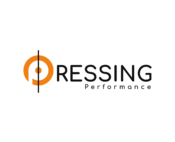They argue that several bank accounts fit for purpose help you see your financial health (or otherwise) with clarity. That way, as soon as you go to one account, there is less confusion about what you need to pay or order. In other words, they know they can get paid as soon as they achieve a milestone. As a result, you won’t have to worry if you are overdue with payments The Significance of Construction Bookkeeping for Streamlining Projects or if a customer is unhappy with your untimely reports. In turn, this means that the construction company must pay the rent or mortgage for the facility. Often called pay application or pay apps, the payment application report is a series of documents that contractors exchange with one another during payment.
Benefits of Best Bookkeeping Software for Construction Companies
Most businesses simply record the cost of the products sold, but construction companies are quite different. Each job incurs direct and indirect costs that may fall into a https://www.inkl.com/news/the-significance-of-construction-bookkeeping-for-streamlining-projects wide range of categories. It’s essential that contractors have an effective method for keeping track of income and expenses, and for reconciling every transaction. Construction accounting software can save you time and help keep you organized when managing your building projects.
Reconcile Bank and Supplier Statements
The accounts payable aging report offers a crystal-clear image of what contractors owe at a certain date and what they will owe in the future. Here’s what this looks like in practice — suppose you are a contractor working on a 1-year project spanning from November 2024 until November 2025. However, the completed-contract method allows the contractor to defer paying tax until a year later. These 3 methods sound pretty self-explanatory, and contractors use them to determine when expenses and income “count” — so to speak. Sometimes, they use one method for their bookkeeping and another for tax reporting. All this is legal — and even advisable — but the only thing is to remain consistent over time.
Best Construction Accounting Software (
One potential downside of the accrual method is that businesses can pay income tax on unrealized profit since the accounting system can record revenues that have not yet been received. One way to mitigate this problem is to structure contracts with the profit evenly distributed rather than front-loaded. The accrual method offers a more forward-looking view of a company’s finances by recognizing revenues and expenses as soon as bills are sent and received. For example, a construction company that has sent a bill for payment will record it as revenue even though the payment itself has not yet been received. Similarly, when the business receives a bill from a vendor or supplier, it will be recorded as an expense even if payment hasn’t yet been sent.
Construction Cash Flow Projection: A Deep Dive into Financial Forecasting
- Secondly, this ensures that the contractor complies fully with industry standards.
- Based on the project’s necessary job types and activities, you’ll be paying varying rates.
- Therefore, the payroll needs to adapt to the changing site conditions and other requirements on the go.
- Properly managing and allocating G&A costs ensures that they do not disproportionately affect the profitability of individual projects.
- Accurately recording financial transactions is crucial for construction firms to track their economic well-being.
- It involves tracking the cost of labor, materials, and other expenses to ensure that projects run as efficiently and cost-effectively as possible.
In conclusion, construction companies need to use specialized bookkeeping practices to effectively manage their finances. It helps track expenses, manage cash flow, and make informed financial decisions. It requires an understanding of unique accounting principles and regulations specific to the industry. The financial components of construction projects are the exclusive purview of construction bookkeeping. The process includes recording all the money coming in and going out of the project. To provide contractors with a comprehensive picture of their financial performance, construction accounting ensures that all financial records are correctly structured.
- Implement a system for tracking inventory levels and reordering supplies as needed.
- However, retainage can lead to significant cash flow challenges for contractors, who may lack the working capital necessary to take on new jobs if earned income is withheld.
- Next, we explore the second method to recognize revenue with a different way of recording expenses and income — the completed-contract method.
- Sometimes, they use one method for their bookkeeping and another for tax reporting.
- Construction bookkeeping is important since projects in this industry tend to be complex.
- The financial components of construction projects are the exclusive purview of construction bookkeeping.
- In short, the double-entry method requires making 2 entries to a general ledger to record each transaction.
In construction accounting, managing indirect costs is crucial because they can significantly impact the profitability of a project. Effective allocation of these costs helps ensure that each project bears its fair share of overhead expenses, contributing to a more accurate assessment of project profitability. The Completed Contract Method delays the recognition of revenue and expenses until a construction project is either fully or substantially completed. This method is often used for short-term or small-scale projects where it is difficult to estimate completion percentages accurately.
